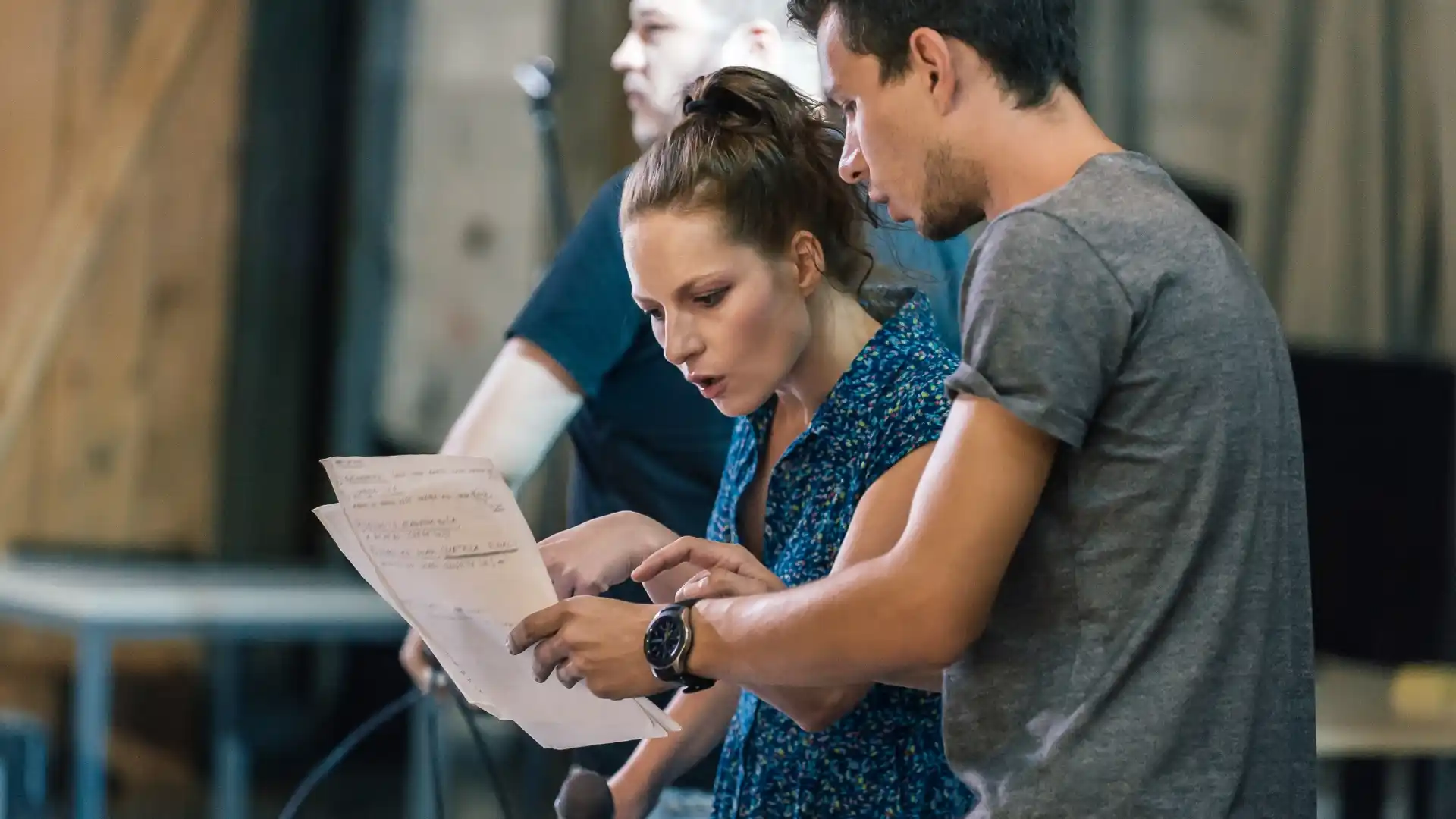If you have an interest in television production and want to learn how to produce a TV show from start to finish, this guide will shed light on the crucial steps and key roles involved in creating a successful TV show. From developing the initial idea to getting your show in front of audiences, each phase plays a vital role in bringing a production to life.
Concept Development
The journey begins with a compelling concept designed to resonate with your target audience. Brainstorm ideas that feel fresh, relevant, and unique. Conduct market research to identify trends and gaps in existing content. Pinpoint your show’s unique selling points—what makes it stand out from the competition? Consider the genre, tone, target demographic, and format early on, as these factors will shape every decision moving forward.
Scriptwriting
Once the concept is solidified, it’s time to bring it to life through scriptwriting. A strong script lays the foundation for your show’s narrative and tone. Collaborate with experienced writers to develop well-structured episodes with engaging dialogue and dynamic characters. Multiple drafts, feedback loops, and revisions are often part of the writing process to ensure the story resonates and flows naturally on screen.
Casting
Casting is crucial to ensure characters are portrayed authentically and convincingly. Talented actors bring scripts to life and have a significant impact on how audiences connect with the show. Conduct auditions and screen tests to find the right performers who embody the characters and complement each other’s performances. Chemistry, range, and screen presence all play a role in the final selection.
Pre-Production
Pre-production sets the groundwork for a smooth filming process. This phase involves creating a detailed production plan, including:
- Finalizing shooting scripts and storyboards
- Securing filming locations and sets
- Hiring crew members (cinematographers, art directors, costume designers, etc.)
- Budgeting and scheduling
- Arranging equipment, props, and permits
A well-organized pre-production phase minimizes disruptions and ensures everyone is aligned before cameras roll.
Production
This is where the TV show is physically filmed according to the script and schedule. It involves managing the cast and crew, overseeing daily shoots, and ensuring the vision is being executed properly. The director leads the on-set creative process, while the producer ensures everything runs smoothly and stays on budget. Effective communication and time management are essential during this phase.
Post-Production
After filming wraps, post-production brings all the elements together to create the final product. This stage includes:
- Editing the footage for pacing and continuity
- Adding visual effects (VFX)
- Sound design and audio mixing
- Scoring with music
- Colour correction and grading
It’s in post-production where the TV show starts to resemble what viewers will eventually see on screen.
Marketing and Distribution
Once your show is complete, it’s time to share it with the world. An effective marketing strategy is essential to generate buzz and attract viewers. This involves creating trailers, posters, social media content, and press releases. Simultaneously, you’ll need to secure distribution—this could be through TV networks, streaming platforms, or independent channels. Strong presentation materials and a polished pitch can help sell your show to the right platform.
Key Roles in TV Production
Creating a successful TV show requires more than just a great idea—it demands the coordinated efforts of many professionals, each playing a vital role in the process. Below are some of the most important figures in television production, whose collaboration brings a show from script to screen.
Showrunner
The showrunner is the creative and managerial head of the show. They are responsible for maintaining the show’s vision across all episodes, coordinating with all departments, and making major creative decisions. Showrunners often have backgrounds as writers or producers and serve as the bridge between the creative team and network executives.
Director
The director translates the written script into visual scenes. They work closely with actors to shape performances, block scenes, and decide on camera angles, lighting, and tone. The director ensures that each episode aligns with the overall creative vision.
Producer
Producers are involved in every phase of production. They manage logistics, budgets, scheduling, and team coordination. Some producers may also contribute creatively by offering input on scripts, casting, or marketing strategies. Executive producers typically secure financing and oversee the high-level execution of the show.
Conclusion
Producing a TV show is a complex but rewarding process that blends creativity with strategic planning. From initial concept development to final distribution, every step matters in crafting a show that resonates with audiences. By understanding each phase and the key roles involved, you’ll be better equipped to navigate the television industry and bring your vision to life.
Key Takeaways:
- A strong concept is the foundation of a successful TV show; it should be unique, relevant, and tailored to a target audience.
- Scriptwriting shapes the narrative and tone—multiple drafts and collaboration are essential to refine the story and dialogue.
- Casting the right actors is crucial for authenticity, chemistry, and audience connection.
- Pre-production involves detailed planning—scripts, locations, crew hiring, budgeting, and scheduling—to ensure a smooth shoot.
- Production is the filming phase, led by the director and managed by the producer; clear communication and time management are vital.
- Post-production includes editing, VFX, sound design, music, and colour grading—this stage shapes the final look and feel of the show.
- Marketing and distribution are needed to promote and place the show on suitable platforms, using trailers, social media, and strong pitches.
- Key roles in TV production include the showrunner (visionary lead), director (visual storytelling), and producer (logistics and coordination).
- Every phase and role contributes to transforming an idea into a polished, audience-ready television show.
Producing a TV show is an intricate process that requires a mix of creativity, technical skills, and industry knowledge. To further your understanding and enhance your skills, consider enrolling in the NYU Business of Entertainment online course.








